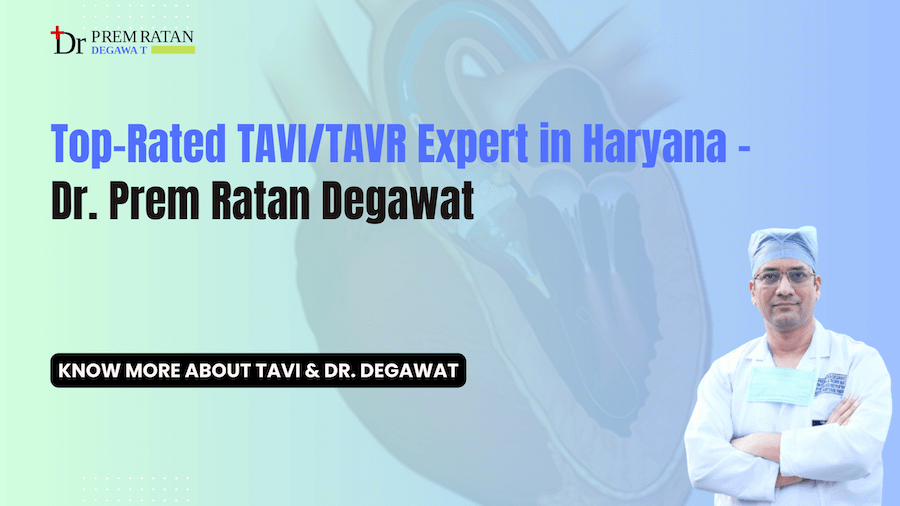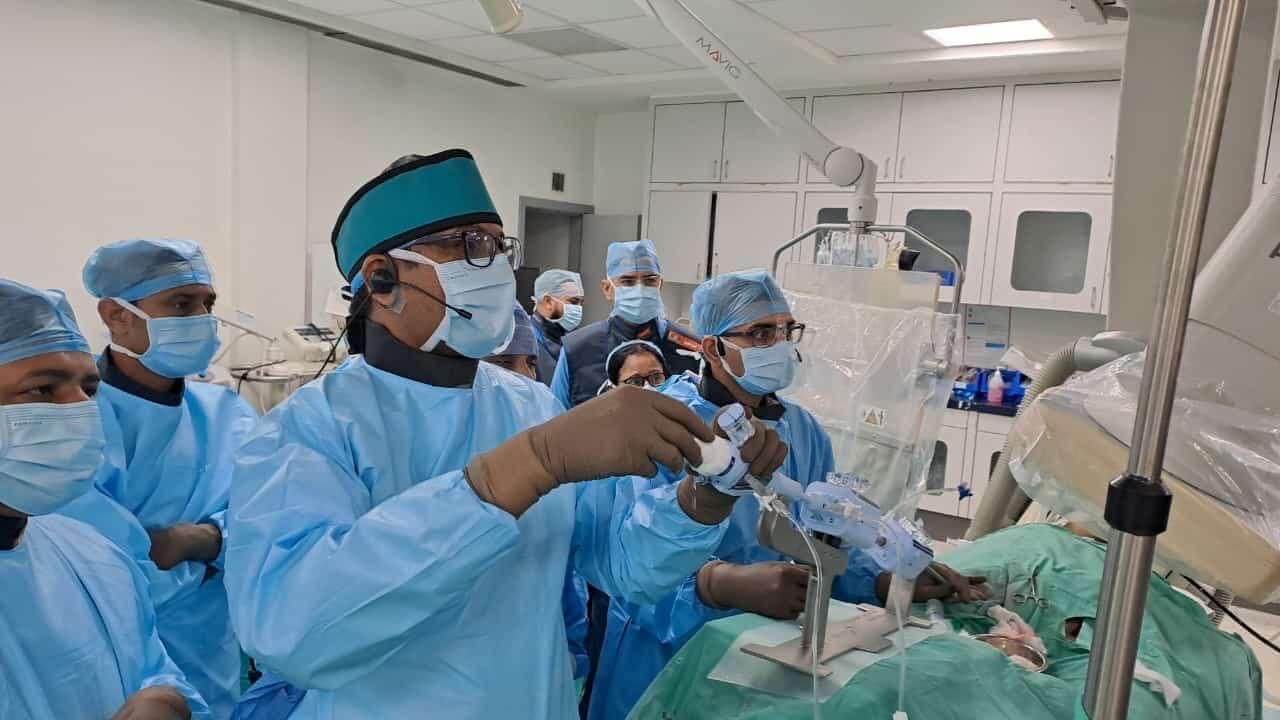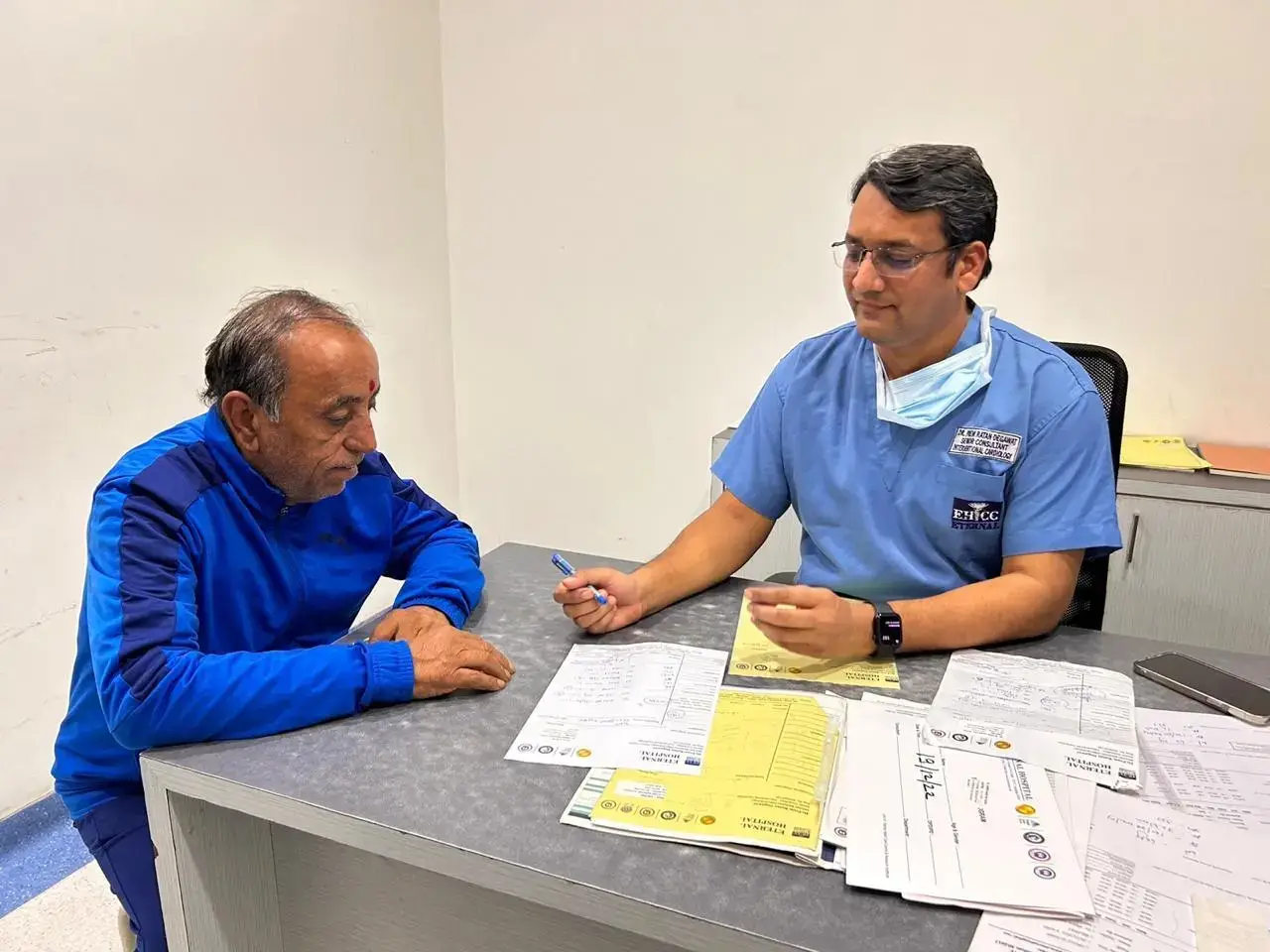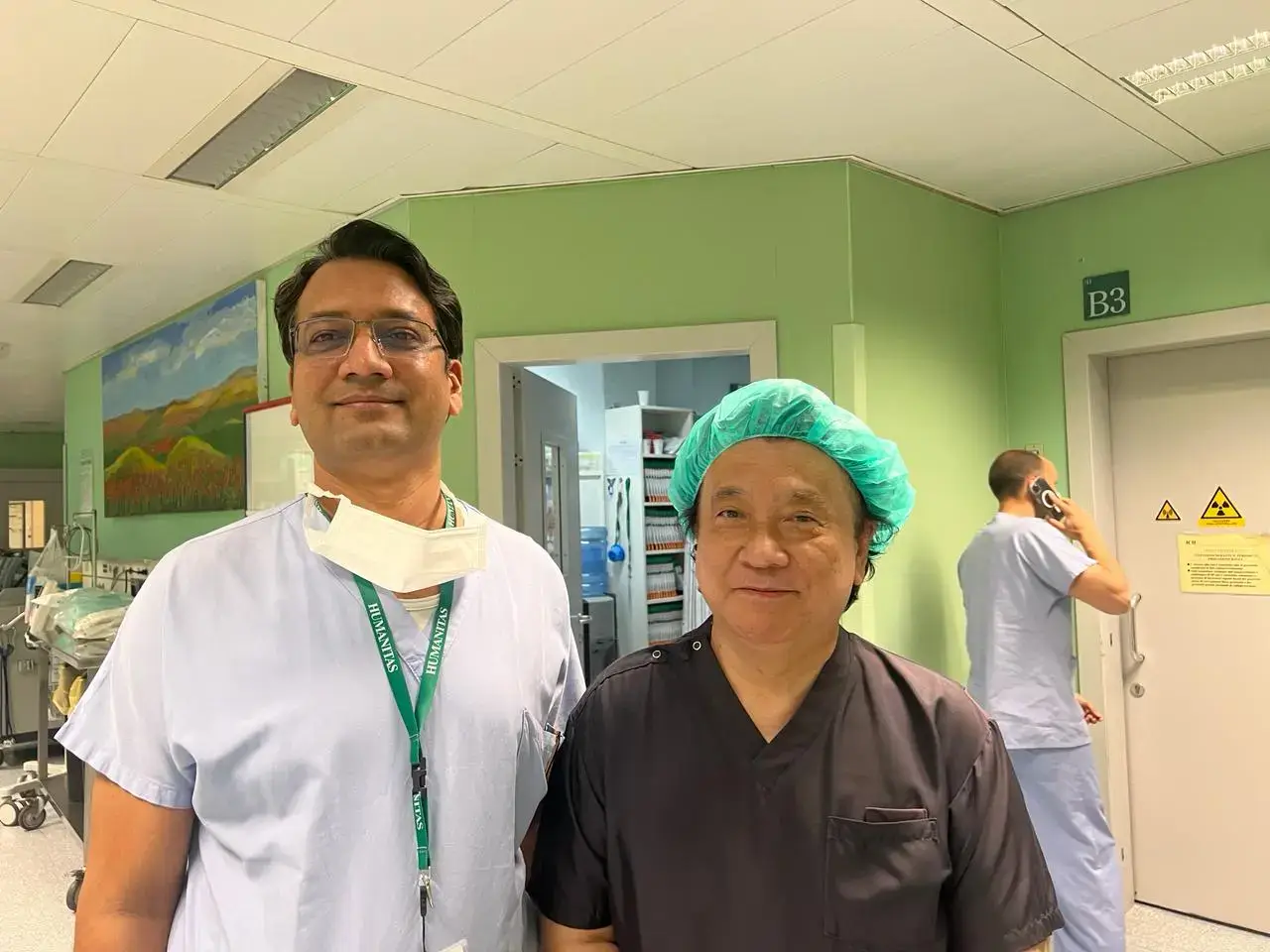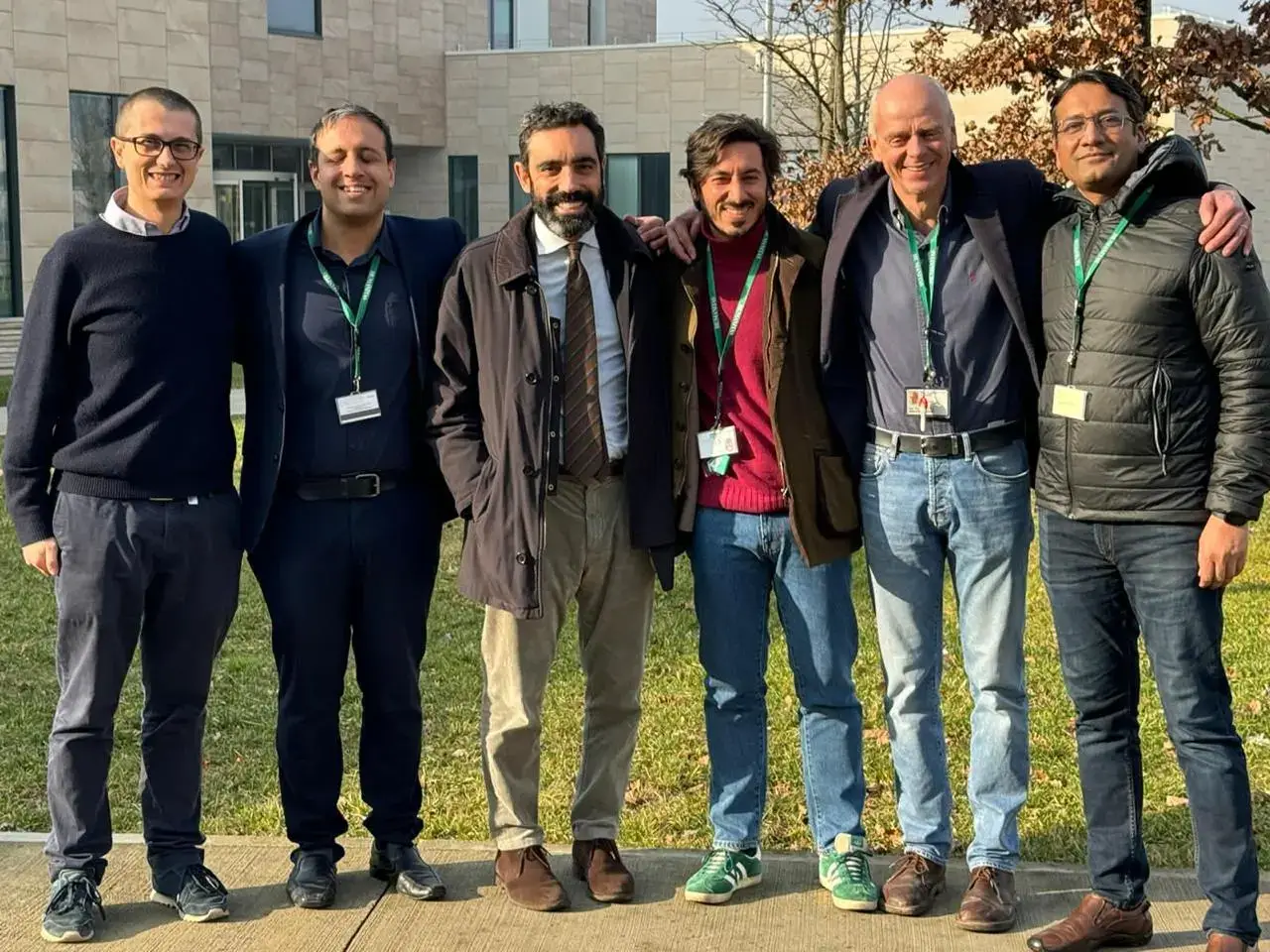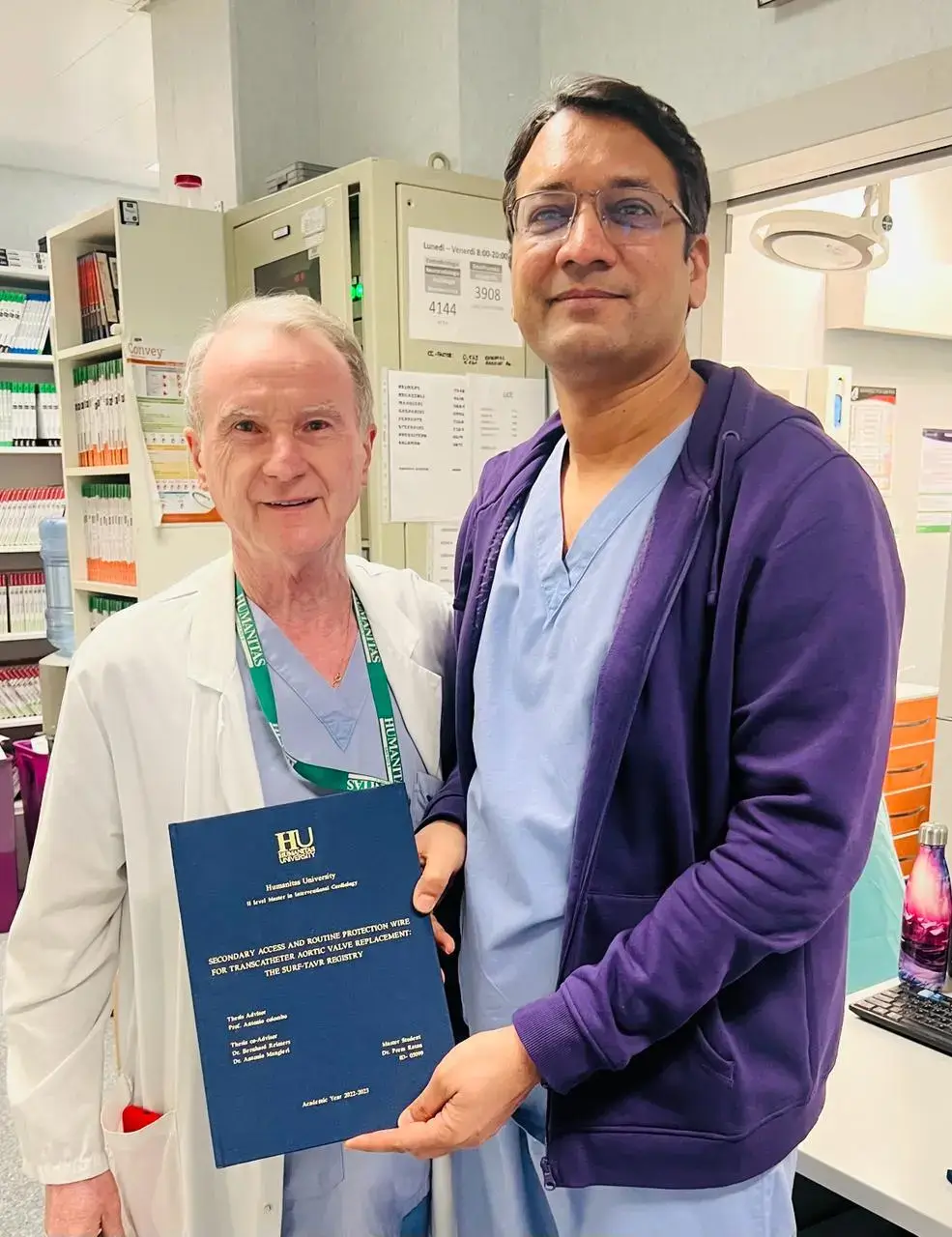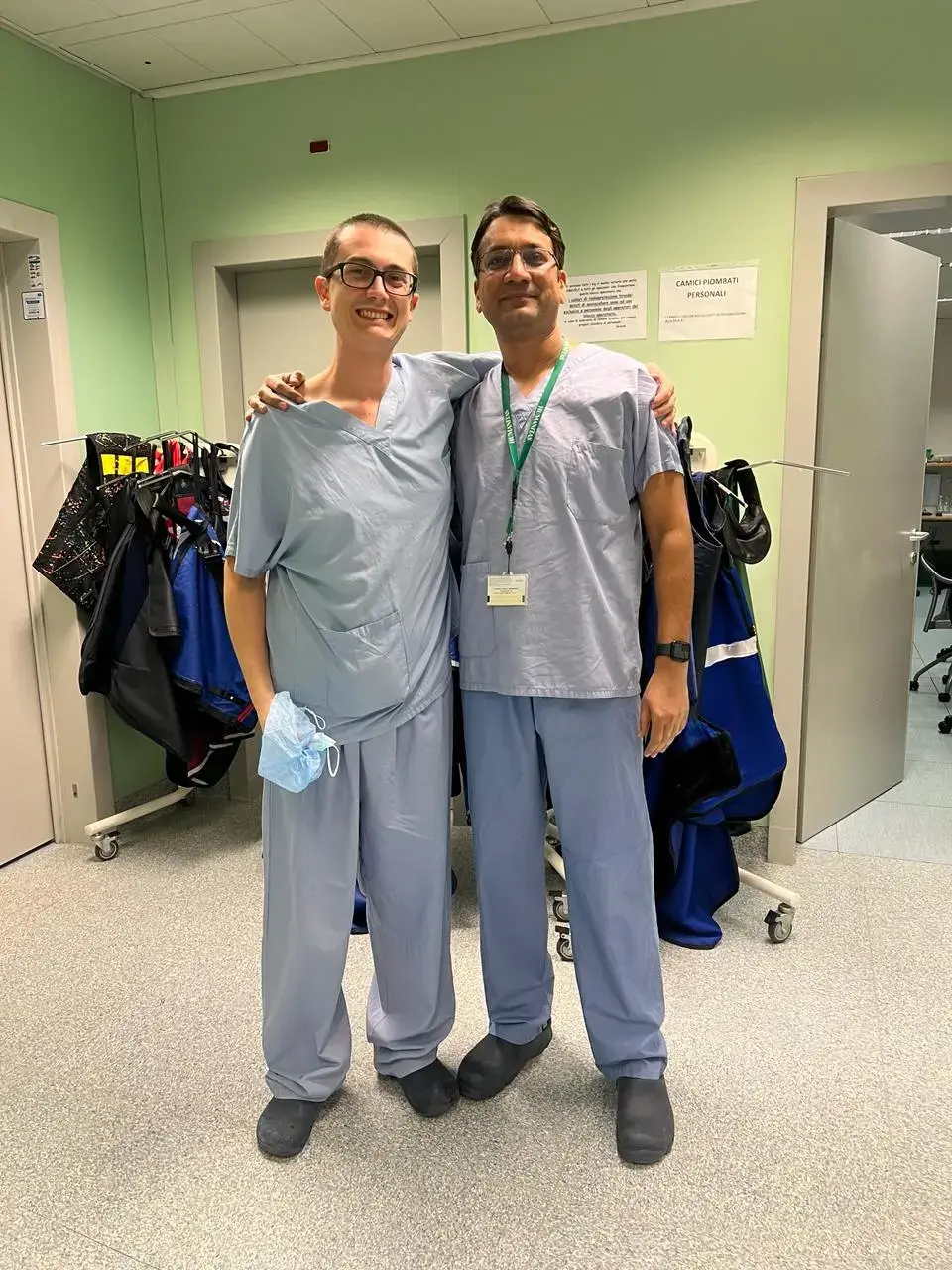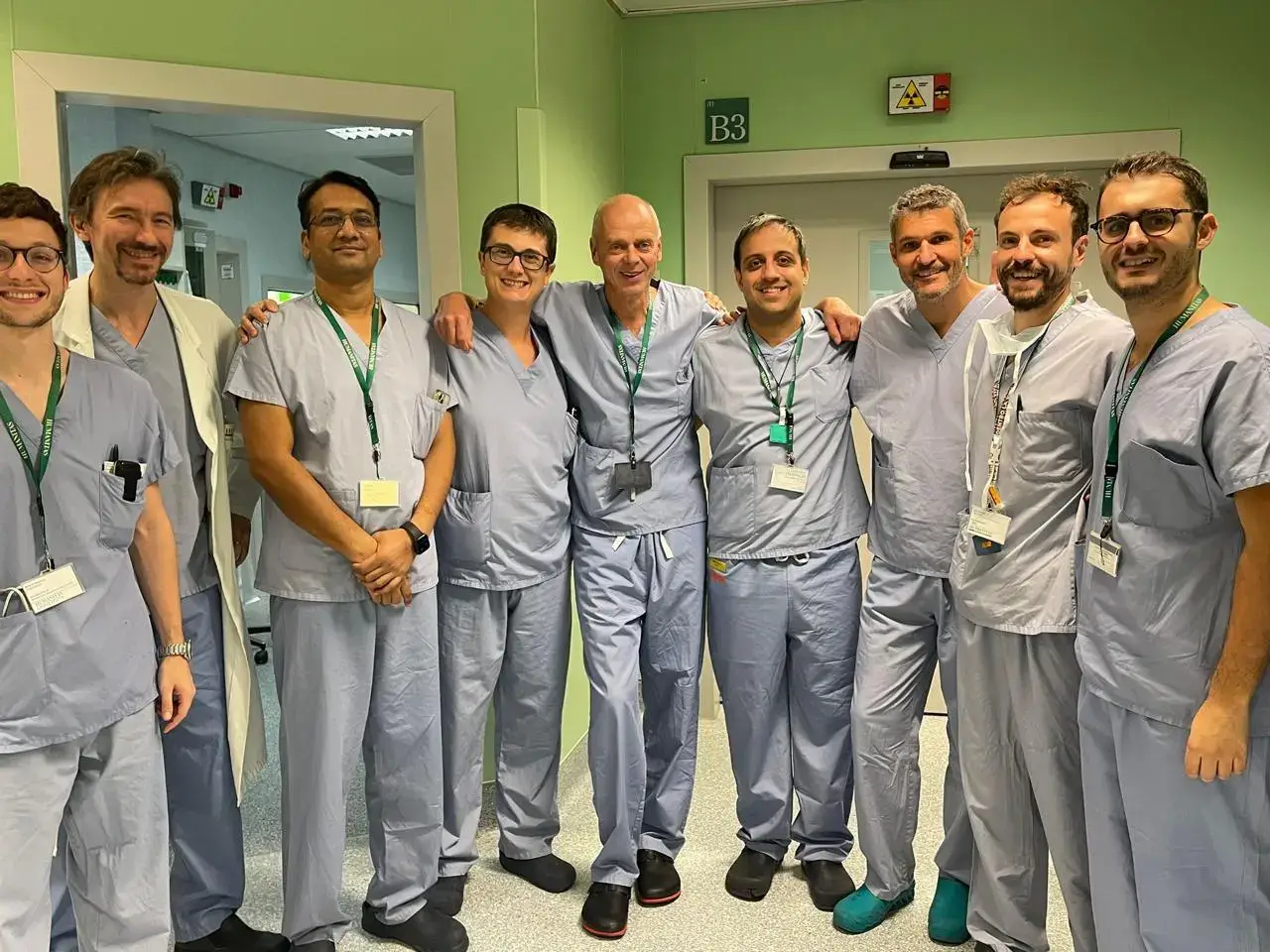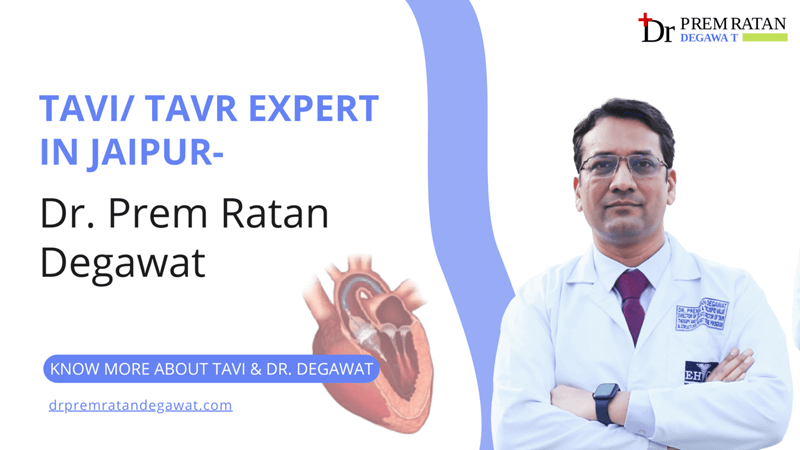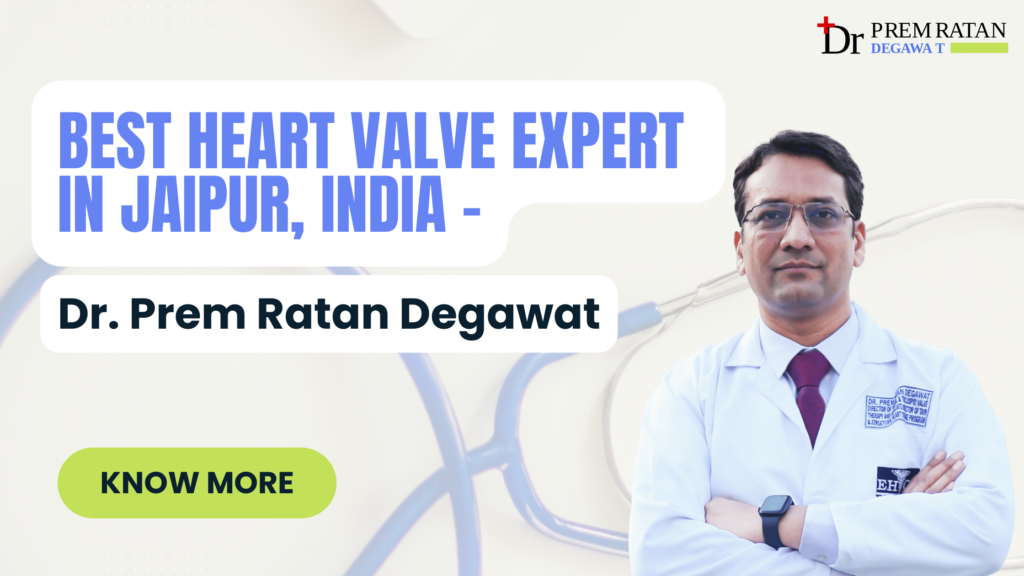Are you suffering from aortic stenosis and dreading the thought of open-heart surgery? You’re not alone. Many patients with this heart condition seek less invasive alternatives. Experience world-class TAVI treatment with Dr. Prem Ratan Degawat, the leading TAVI Expert in Haryana.
What is TAVI/ TAVR?
TAVI is a minimally invasive procedure used to treat aortic stenosis, a heart condition where the aortic valve narrows, restricting blood flow. Unlike traditional open-heart surgery, TAVI involves inserting a new aortic valve through a small incision in the blood vessel, reducing recovery time and risks associated with major surgery.
Benefits of TAVI
- Less invasive than open-heart surgery
- Shorter hospital stay and recovery time
- Reduced risk of complications
- Improved quality of life
TAVI Procedure and Recovery
The TAVI procedure is typically performed in a catheterization laboratory under local anesthesia. A small incision is made in the groin or chest to access the blood vessel leading to the heart. A catheter with a new aortic valve is then guided to the heart, where the old valve is replaced.
Recovery time varies depending on individual factors, but patients generally experience a shorter hospital stay compared to open-heart surgery. Most patients can resume normal activities within a few weeks.
Who is a Candidate for TAVI?
TAVI (Transcatheter Aortic Valve Implantation) is typically recommended for patients with severe aortic stenosis who are considered high-risk for traditional open-heart surgery.
Common Patient Profiles:
- Elderly patients: Often have multiple comorbidities making open-heart surgery too risky.
- Patients with significant medical conditions: Such as lung disease, kidney disease, or severe diabetes.
- Patients with previous chest surgeries: Making open-heart surgery challenging.
- Patients with frailty or reduced functional status: Who may not tolerate open-heart surgery well.
It’s important to note that TAVI candidacy is determined by a multidisciplinary heart team that includes cardiologists, and cardiac surgeons. Each patient’s case is evaluated individually to assess suitability for the procedure.
Why Choose Dr. Prem Ratan Degawat for TAVI/ TAVR?
Dr. Prem Ratan Degawat is a highly skilled cardiologist and a leading TAVI Doctor in India with a proven track record in treating complex heart conditions. With a distinguished career spanning several years, he has established himself as a leading authority in the field of interventional cardiology. His expertise in TAVI procedures has earned him recognition as one of the top cardiac specialists in the region.
- Extensive Experience: Dr. Degawat has successfully performed over 600 TAVI procedures, including complex cases, demonstrating his expertise in the field.
- Advanced Techniques: He stays updated with the latest advancements in TAVI technology to offer the best possible outcomes for his patients.
- Personalized Care: Dr. Degawat takes a patient-centered approach, tailoring treatment plans to individual needs.
- Compassionate Care: He provides emotional support and guidance throughout the treatment process.
- Research-Driven Care: Dr. Degawat’s unwavering commitment to patient care is complemented by extensive research on safe TAVI practices, drawing insights from nearly 2000 European cases.
Dr. Degawat’s Qualifications:
- MBBS from Sardar Patel Medical College, Bikaner
- MD (Internal Medicine) from Sardar Patel Medical College, Bikaner
- DM (Cardiology) from King George’s Medical University, Lucknow
- Fellowship in Complex Interventional Cardiology from IRCCS, Italy
- Fellowship in Structural Heart Disease & TAVR from IRCCS, Italy
Patient Testimonials
Patient Testimonials
By choosing Dr. Prem Ratan Degawat for your TAVI treatment, you can be confident in receiving the highest quality care and achieving optimal outcomes.
Schedule a consultation today!
Disclaimer: This blog post is for informational purposes only and does not constitute medical advice. Always consult with a qualified healthcare professional for diagnosis and treatment.
